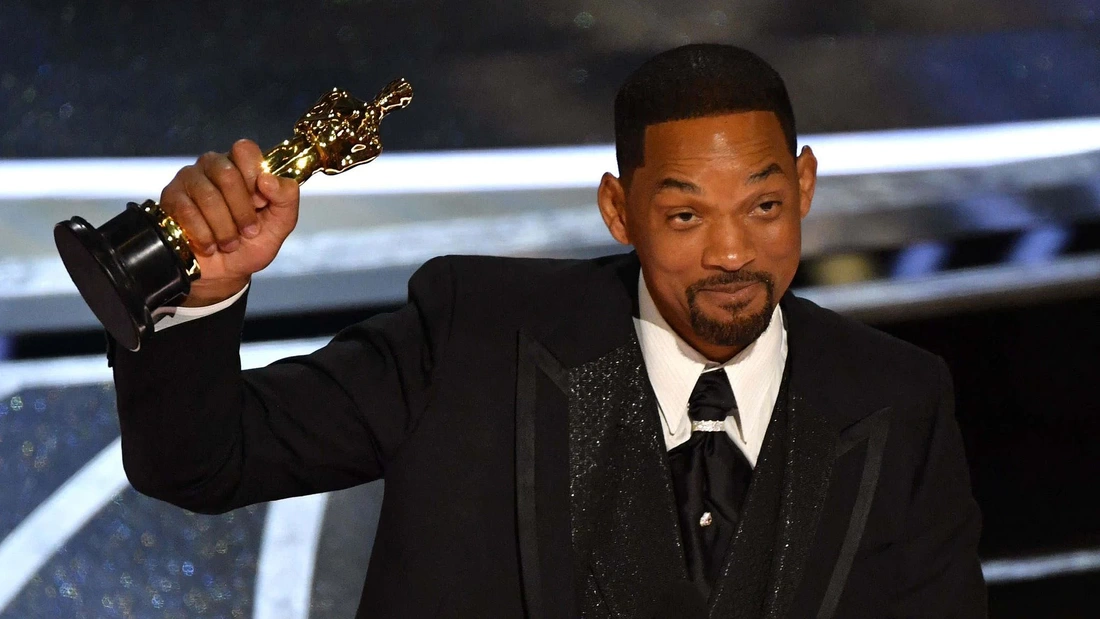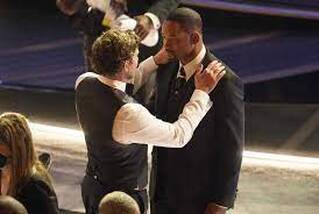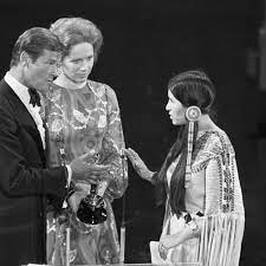"After last year's Covid-ly weird event, the annual Academy Awards returned to the Dolby theater with its consistent promise of incoherent speeches, uncomfortable bits, as well as the strangest lineup I’ve watched to date. But against all, the moment that stood out the most for tabloids and Twitter users was Chris Rock's slap to the face by best leading actor nominee, Will Smith." -- Piper stuip, 8th grade
After last year's Covid-ly weird event, the annual Academy Awards returned to the Dolby theater with its consistent promise of incoherent speeches, uncomfortable bits, as well as the strangest lineup I’ve watched to date. But against all, the moment that stood out the most for tabloids and Twitter users was Chris Rock's slap to the face by best leading actor nominee, Will Smith.
The event has been a big topic of discourse among social media and journalism in past weeks.
There were questions about whether or not the man who portrayed Richard Williams in the best picture nominated film King Richard, could potentially lose his Oscar. Many also predicted his suspension. Which proved to be right when last week it was announced that Smith has been banned from the ceremony for the next ten years. But it poses the question, what is the history of Hollywood's biggest night and instances like this?
The Academy code of conduct, approved by the Oscars in 2017, states: “categorically opposed to any form of abuse, harassment or discrimination, people who abuse their status, power or influence in a manner that violates standards of decency.” Along with congratulating the winners, a tweet sent out by The Academy made a reminder of their conduct, “The Academy does not condone violence of any form.”
So, there was definitely some sort of punishment to be expected, no matter who was or who wasn’t in the wrong. However to enact a suspension of ten years onto Smith is excessive, and even more so to consider taking away his Oscar while much worse things worthy of punishment have happened under the Academy’s nose. This was many’s response to the punishment.
The event has been a big topic of discourse among social media and journalism in past weeks.
There were questions about whether or not the man who portrayed Richard Williams in the best picture nominated film King Richard, could potentially lose his Oscar. Many also predicted his suspension. Which proved to be right when last week it was announced that Smith has been banned from the ceremony for the next ten years. But it poses the question, what is the history of Hollywood's biggest night and instances like this?
The Academy code of conduct, approved by the Oscars in 2017, states: “categorically opposed to any form of abuse, harassment or discrimination, people who abuse their status, power or influence in a manner that violates standards of decency.” Along with congratulating the winners, a tweet sent out by The Academy made a reminder of their conduct, “The Academy does not condone violence of any form.”
So, there was definitely some sort of punishment to be expected, no matter who was or who wasn’t in the wrong. However to enact a suspension of ten years onto Smith is excessive, and even more so to consider taking away his Oscar while much worse things worthy of punishment have happened under the Academy’s nose. This was many’s response to the punishment.
The discourse of Smith's retribution brought up the topic of other Academy Award winners, ones including the notorious Woody Allen, a well known predator and four time Oscar winner, who retains possession of his awards to this day. Other names that have also been brought up in the conversation are Harvey Weinstein, and Roman Polanski both of which have been reported and admitted to violence against women. Although both were banned, it took decades to do so, whereas Smith’s took two weeks.
As for acts of violence, this is not the first time either. At the 1973 Academy Awards ceremony, Marlon Brando was up for Best Leading Actor. When it was revealed that he had won, the audience was shocked when instead of Brando stepping up to accept the award, indigenous actor and activist Sacheen Littlefeather had been sent to decline it. She delivered his denouncement and reasoning, speaking of the mistreatment of Native Americans in Hollywood, and in the general world. That is until John Wayne, an actor best known for his westerns, decided to act up and had to be restrained by security from pulling Littlefeather off the stage, going on to insult her and Brando later. Clint Eastwood also took part by mocking her when on stage to present Best Picture. Neither man ever received punishment for their actions.
As of now, Smith has been banned from attending the event and has resigned from the Academy. This means that he can still be nominated, but he is no longer a voting member of the organization. It's a lot for a slap, even if it wasn’t right. However judging Smith by this, most likely the worst thing he has publicly done, is something I think we should refrain from doing. The best thing that we can do now is move on.
In the end, I don’t think it totally matters. You miss one event that happens one day a year that you might not be able to go to anyways. So what? I doubt Smith is torn up about it, and I hope that Smith returns to the awards when his time comes and that we can move past this, swiftly and collected.




